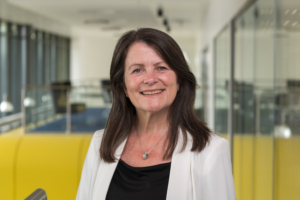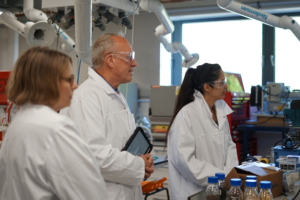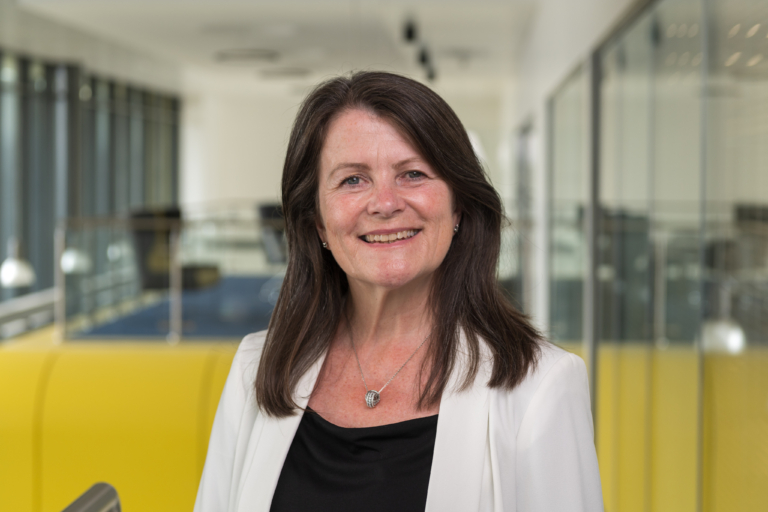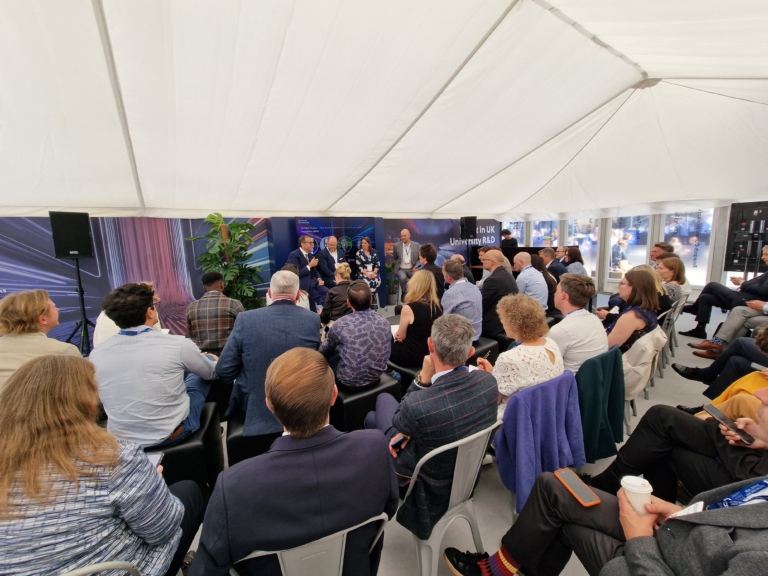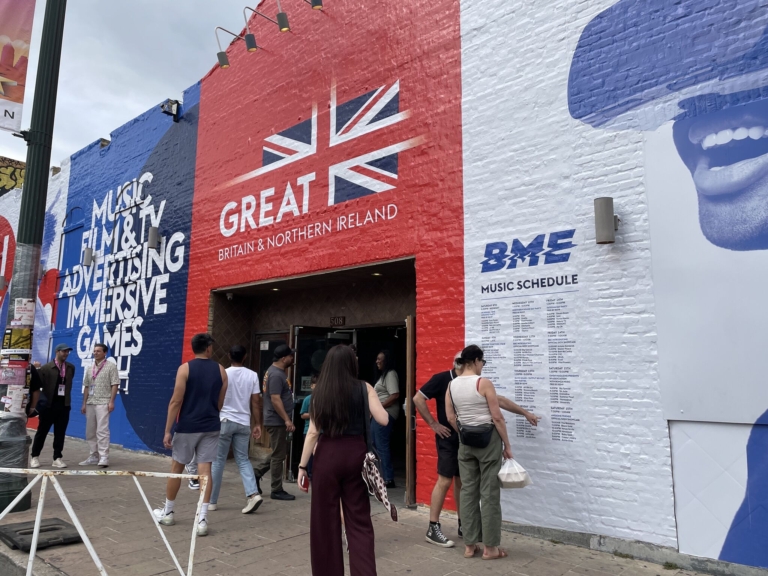Whilst the seasons may be changing, Midlands Innovation remains as busy as ever and our work can be categorised through its focus on supporting the region’s researchers, championing the research expertise and our wider region, and providing opportunities for our partnership.
In September we were delighted to sponsor the National PostDocs Conference (NCPD23) which this year was hosted by C-DICE and MI partner Loughborough University.
NPDC23 is the only conference in the UK dedicated solely to the celebration of postdoctoral researchers from any university, in any discipline. It brings together the postdoctoral community to help them to navigate their postdoc journey and equip them to thrive in their current roles and beyond.
At Midlands Innovation, we are passionate about supporting our people, so it was great that myself and several members of M Executive Management Group were invited to attend part of the conference to show our support for Post Doctorate researchers. High profile conference speakers included, Professor Dame Jessica Corner, Executive Chair of Research England, and Hetan Shah, the Chief Executive of British Academy.
We were also able to arrange a roundtable discussion for MI partners’ Pro Vice-Chancellors of Research with Professor Dame Jessica Corner and colleagues from Research England as part of the consultation they are undertaking of the REF2028 proposals.
We recently had the opportunity to showcase Midlands research expertise to the Chief Scientific Adviser for the Department for Levelling Up, Housing and Communities and the Department’s Head of Science for Policy. They visited Loughborough University’s matched-pair of test houses which are a unique facility for side-by side testing of technologies, methods and models that experiment with the different ways you can insulate and heat a property to test conventional methods against new methods to reduce energy demand which reduces the emissions causing climate change. They also heard about the University’s wider Built Environment research expertise. Whilst in the East Midlands, our visitors also received a tour of the Trent Basin regeneration scheme and multi-award-winning green energy scheme.
Trent Basin is an urban regeneration scheme which is creating a new eco suburb in Nottingham. The developer is a public / private partnership which are creating the new homes and developing a brand new neighbourhood.
Aligned to the development is an award-winning community green energy scheme undertaken by the University of Nottingham (through Midlands Innovation energy research programme – the Energy Research Accelerator), in collaboration with the residents of Trent Basin and the housing developer.
Green energy is generated on site through solar panels, the community can see their usage in real-time, allowing them to reduce their energy consumption and to sell excess electricity generated back to the grid. The research scheme is innovating business models to make a low carbon future commercially attractive.
During the visit, representatives from MI partner universities and the Midlands Engine were also able to discuss how the region is supporting the levelling up agenda.
The Midlands Health and Care Inequalities Policy Commission presented its preliminary findings to the newly refreshed Midlands Engine Health Board to inspire collaborative activity and build accountability amongst key regional stakeholders to tackle health and care inequalities in the region.
In the West Midlands, we brought together representatives from MI partner’s Graduate Schools, who met with a representative of Jisc to discuss generative AI and issues relating to postgraduate student supervision and assessment. On the same day, the Midlands Open Bioimaging network, a collaborative network that facilitates remote training and access to advanced microscopy, hosted a visit of representatives of the BBSRC infrastructure team. They showcased a newly built remote-control microscope and discussed experiences of remote access to microscopy, the benefits and opportunities it brings, and some of the challenges we have experienced during our pilot project.
Nearly 100 people participated in the virtual launch event for the new Midlands Extracellular Vesicle (EV) Network in September, which was arranged by Midlands Innovation Immunology Network. Presenting Midlands research and collaboration opportunities, the event drew participation from across the country and from academia, industry, funders and government agencies. Importantly, the event highlighted the work of Early Career Researchers and Technicians, who are to be key to the development of the new network. This event focused on EV’s in ‘Health and Inflammation’ and was the first in a series. Catch-up and see recordings from the sessions here.
The title of this blog is people, place and partnerships and so I want to sign-off by writing more about these important principles for our partnership. Midlands Innovation has proven research strengths in energy, health, social sciences, space and transport and a strong track record collaborating in enterprise, research culture and research infrastructure. As the research and innovation landscape evolves, we need to ensure our combined strengths build on existing activities to create opportunities for the region, its people and our eight university members.
A new strategy has been published which outlines how we will deliver bold and impactful initiatives, focusing on five overarching priorities: people, place, partnership, projects and policy. I want to thank our university partners for their inputs and the efforts to create a shared vision for research collaboration in the next five years.
Through collaboration, we will influence future prospects for the region by working in partnership to advocate for research and innovation. Before 2027, Midlands Innovation will create opportunities that will strengthen the research and development (R&D) workforce, grow our spinout portfolio, secure funding for areas of research excellence and infrastructure, generate new insights to support regional intelligence and design initiatives and solutions with regional and national stakeholder to enhance the R&D ecosystem. You can read our new strategy here.
